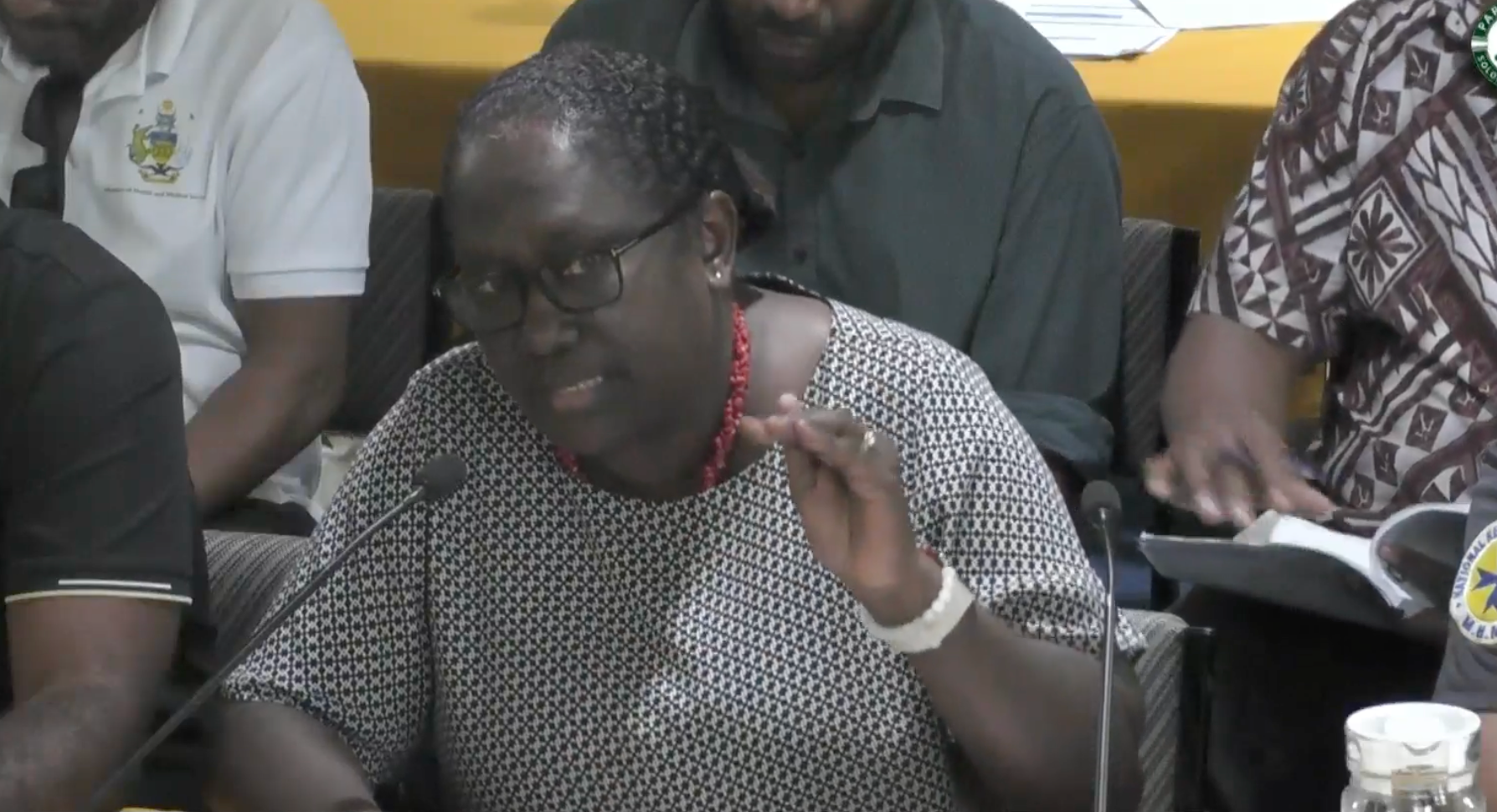
by Ednal Palmer
The Ministry of Health and Medical Services (MHMS) has only itself to blame for failing to manage and properly coordinate its internal operations.
This was revealed during hearings on the Public Service Bill 2025 today, where the Ministry’s shortcomings in managing health workers and services came under scrutiny.
Appearing before the hearings were Permanent Secretary Pauline McNeil and National Referral Hospital Chief Executive Officer Dr George Malefoasi.
In their contributions to the Bill, both acknowledged significant internal challenges within the Ministry.
These include persistent staff departures, weak monitoring systems, and critical shortages in Human Resources Management capacity.
Human Resource Management Gaps
When questioned on recurring complaints about Human Resource (HR) functions, casual contracts, and nursing shortages—whether linked to bottlenecks at the Ministry of Public Service and their impact on productivity—Permanent Secretary (PS) Pauline McNeil admitted the real challenge lies within MHMS’s HR capacity.
“We have fewer than five HR staff,” McNeil said.
“We need more personnel to handle specific responsibilities,” she added.
She also highlighted the absence of a proper HR database to track staff movements and development.
“It’s ad hoc. We need a robust database.”
Chairman of the Bills and Legislation Committee (BLC), Mathew Wale, noted that such gaps have long demoralized the health workforce, while National Referral Hospital CEO Dr George Malefoasi pointed to serious flaws in the Ministry’s Orion System.
“The hospital maintains an updated list of nurses and doctors, but the Ministry relies on outdated manual records,” Malefoasi said.
“Even the staffing establishment in the Orion system is wrong. We need the system corrected and centralized at the Ministry,” he added.
Wale said hat the consequences of these failures are plain to see in inefficient clinical services.
Employee Resignations
The Ministry also revealed it continues to pay some employees who have already resigned and taken up overseas contracts, particularly in aged care.
PS McNeil said the Ministry often receives resignation notices after staff have already departed.
“Some employees continue to receive public service grants while working abroad. Many leave without serving their notice period. By the time letters arrive, they are already overseas.”
This disclosure surprised Chairman Wale, who urged MHMS to coordinate with Immigration to prevent staff from leaving without completing their resignation requirements.
McNeil confirmed the Ministry has figures on the number of workers departing for overseas contracts but admitted the tracking process remains weak.
Retirement Age Proposal
The MHMS has recommended raising the retirement age from 55, as proposed in the Bill, to 65.
PS McNeil argued that specialists, nurses, and clinicians should be retained to bridge the workforce gap and transfer knowledge to younger staff.
“The retirement age of 65 is recommended for health workers because of the HR gap.
“These people are still active, needed to support services, and to impart skills. Around 40 percent of our current workforce is nearing retirement, making this critical,” she said.
She stressed the proposal is targeted at clinicians, doctors, nurses, and laboratory staff, not administrative officers.
While acknowledging potential budget implications, McNeil insisted that retaining senior specialists is vital. “A few really need to continue, especially senior specialists.”
Chairman Wale suggested such provisions should be addressed in regulations rather than embedded in the Bill itself.
